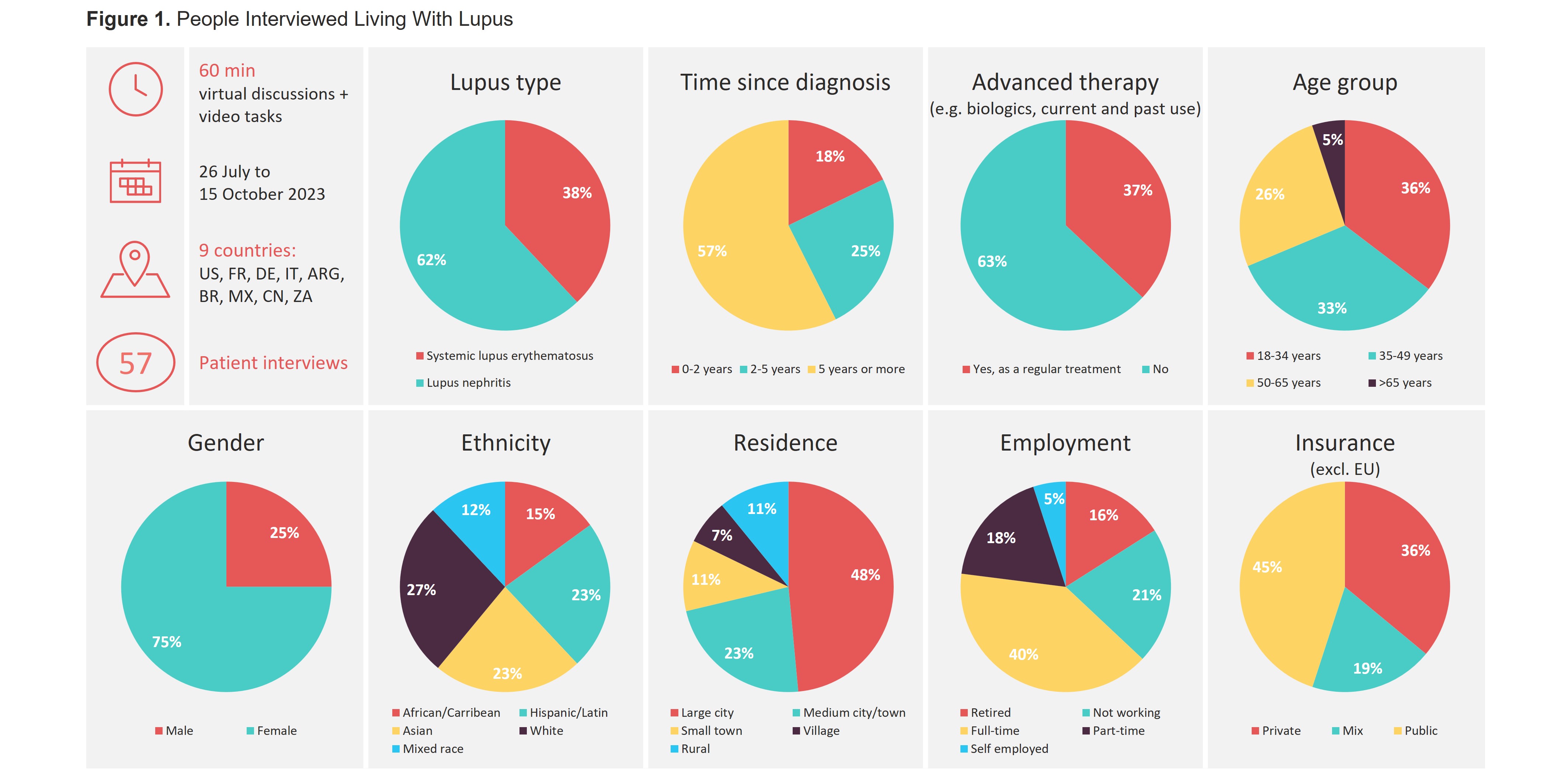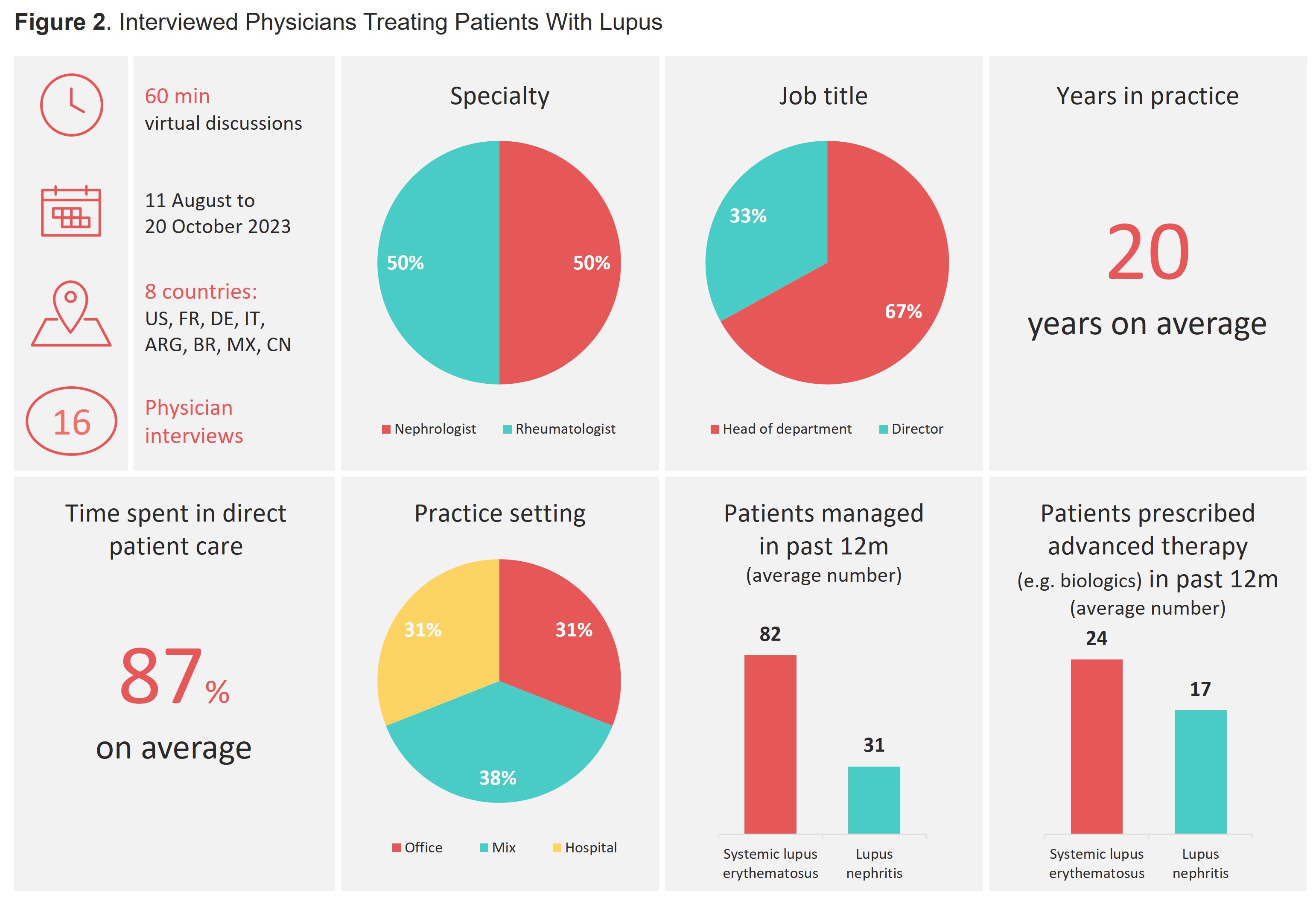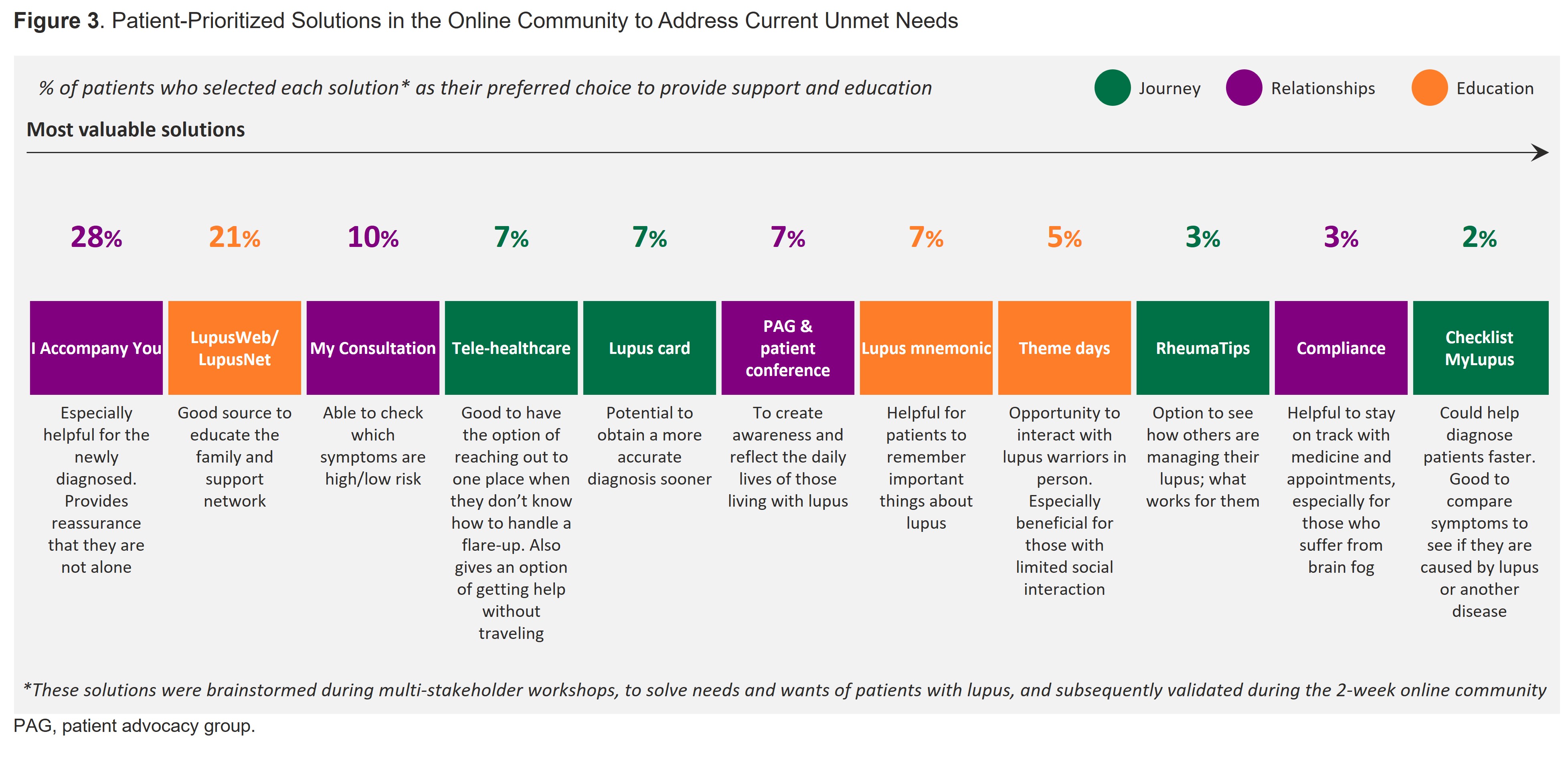Session Information
Date: Saturday, November 16, 2024
Title: SLE – Treatment Poster I
Session Type: Poster Session A
Session Time: 10:30AM-12:30PM
Background/Purpose: Systemic lupus erythematosus (SLE or lupus) is a chronic autoimmune disease that affects multiple organs, including the skin, joints, lungs, heart, kidneys and brain. Symptoms vary widely, and disease progression is unpredictable. Lupus significantly impacts daily functioning and overall quality of life (QoL).1 Patients with lupus navigate various personal, medical and social challenges throughout their lives. There is a lack of well-defined diagnostic criteria, and finding effective, well-tolerated treatment options is challenging.
Based on a Patient Benefit Societal Impact insight framework co-created by experts and Roche, this research aimed to explore patient experiences, unmet needs, emotional impacts and daily functional difficulties across different genders, ages, geographies and ethnicities and seek patient-centric strategies to alleviate the burden of lupus.
Methods: The multi-phased research approach started with social media listening and a literature review, followed by in-depth interviews (IDIs) in 9 countries worldwide with people living with lupus (Figure 1) and healthcare providers (Figure 2). Insights from IDIs were discussed in multi-stakeholder workshops to identify potential solutions to key challenges impacting patients with lupus. Identified solutions were validated in an online community (n=61) and ranked in order of priority (Figure 3).
Results: The study revealed significant challenges in the diagnosis process, including misdiagnosis and delays leading to feelings of dismissal and frustration among patients.2-4 Access to appropriate treatment was hindered by long waiting times, limited referral options and incomplete response to current treatments. Lupus profoundly burdened patients’ daily lives, affecting QoL, work productivity and emotional well-being.5 Lack of dietary guidance, inadequate support for family planning, health disparities and limited access to reliable information further compounded the challenges.6-9
Conclusion: Improving lupus care requires timely diagnosis, expert training and expanded specialist access. Enhancing integrated care and streamlining referrals will address treatment delays. Personalized treatment plans, comprehensive support for daily life and mental health and strong patient–provider relationships that foster dialogue, empathy and patient inclusion in decision-making are crucial. Clear dietary recommendations and better communication about family planning and pregnancy are necessary. Addressing health disparities through targeted outreach and equitable access policies will ensure all patients receive the necessary information and care.
References
1. Sutanto B, et al. Arthritis Care Res (Hoboken). 2013;65(11):1752-1765.
2. Cornet A, et al. Lupus Sci Med. 2021;8(1):e000656.
3. Morgan C, et al. Lupus. 2018;27(4):681-687.
4. Daly R, et al. Arthritis Rheumatol. 2017;69(Suppl 10):1-4426.
5. Kent T, et al. Lupus. 2017;26(10):1095-1100.
6. Islam MA, et al. Front Immunol. 2020;11:1477.
7. Rahman A, Isenberg DA. N Engl J Med. 2008;358(9):929-239.
8. Ferguson S, et al. Lupus. 2016;25(1):12-17.
9. Lewis MJ, Jawad AS. Rheumatology (Oxford). 2017;56(suppl_1):i67-i77.
To cite this abstract in AMA style:
Andersen J, Meyer I, Camadoo N, Machado T, Saraf S, Akrout M. Understanding the Patient Burden of Lupus: Insights from Multi-Faceted Ethnography Research [abstract]. Arthritis Rheumatol. 2024; 76 (suppl 9). https://acrabstracts.org/abstract/understanding-the-patient-burden-of-lupus-insights-from-multi-faceted-ethnography-research/. Accessed .« Back to ACR Convergence 2024
ACR Meeting Abstracts - https://acrabstracts.org/abstract/understanding-the-patient-burden-of-lupus-insights-from-multi-faceted-ethnography-research/



